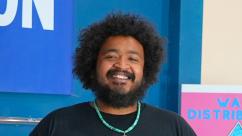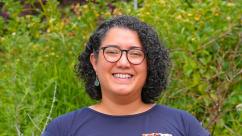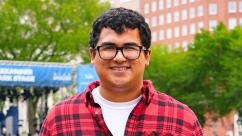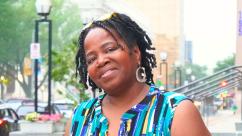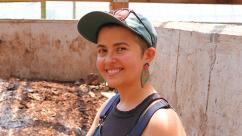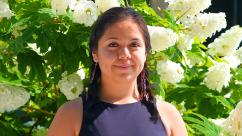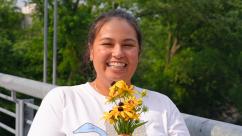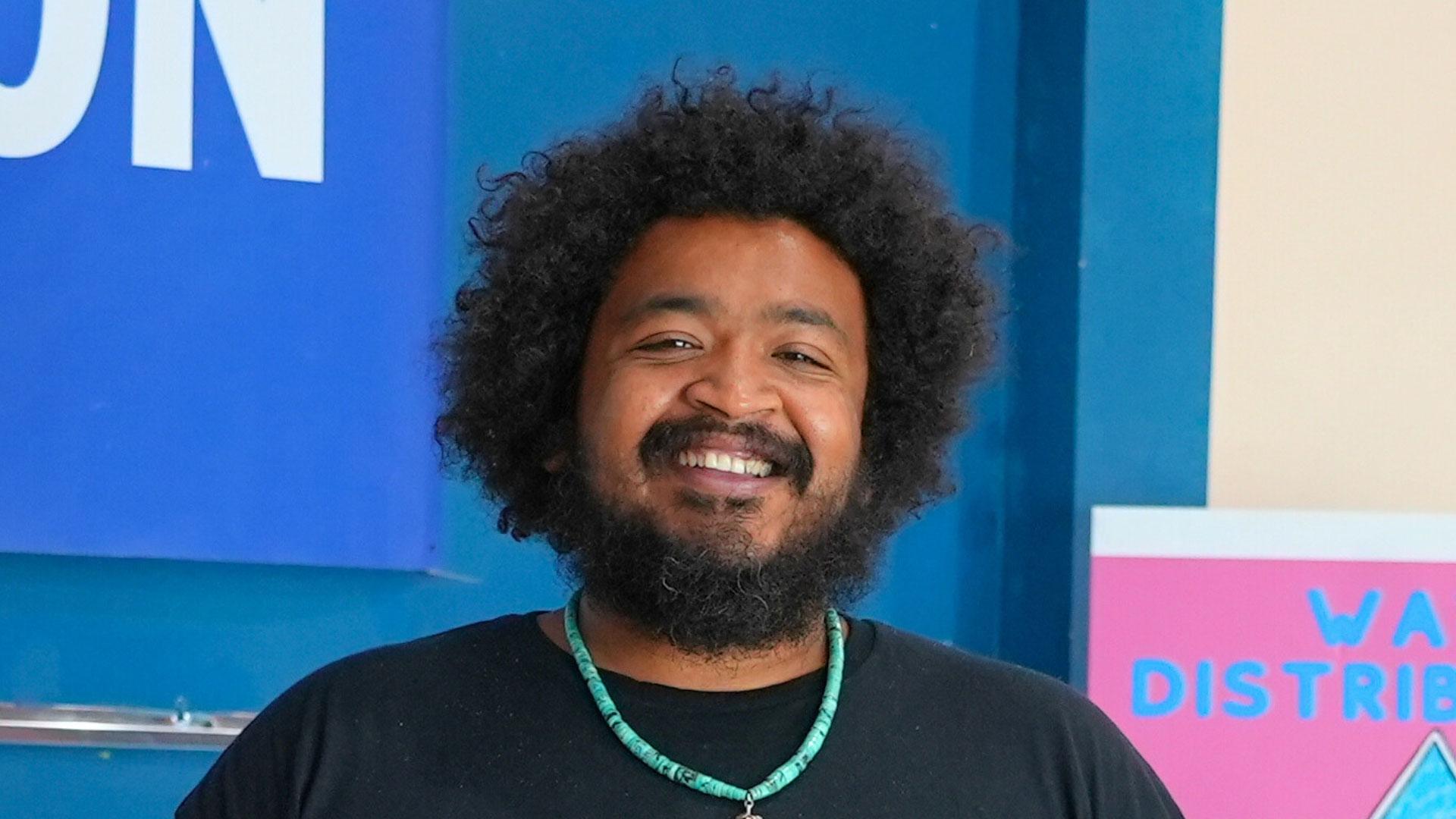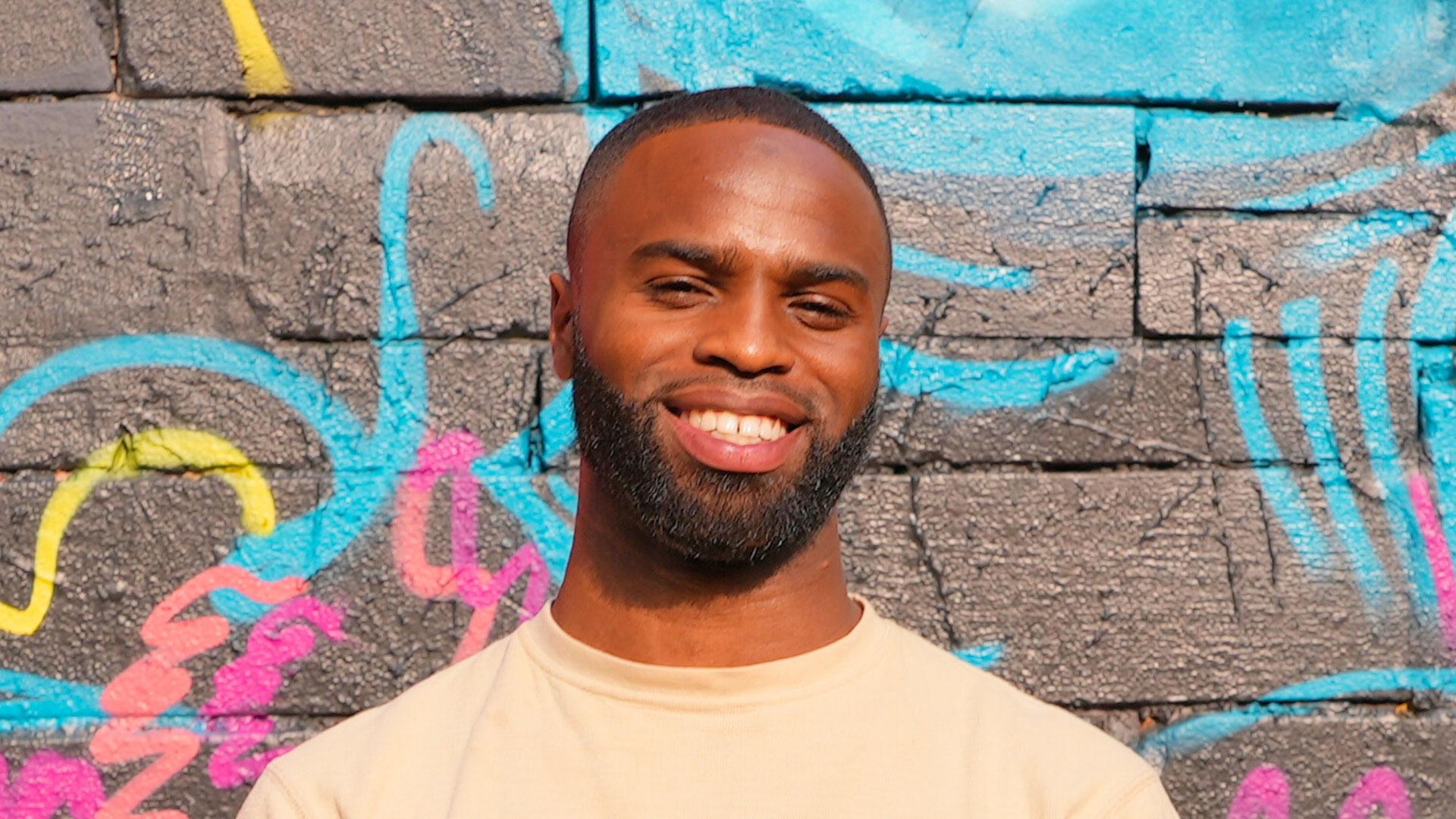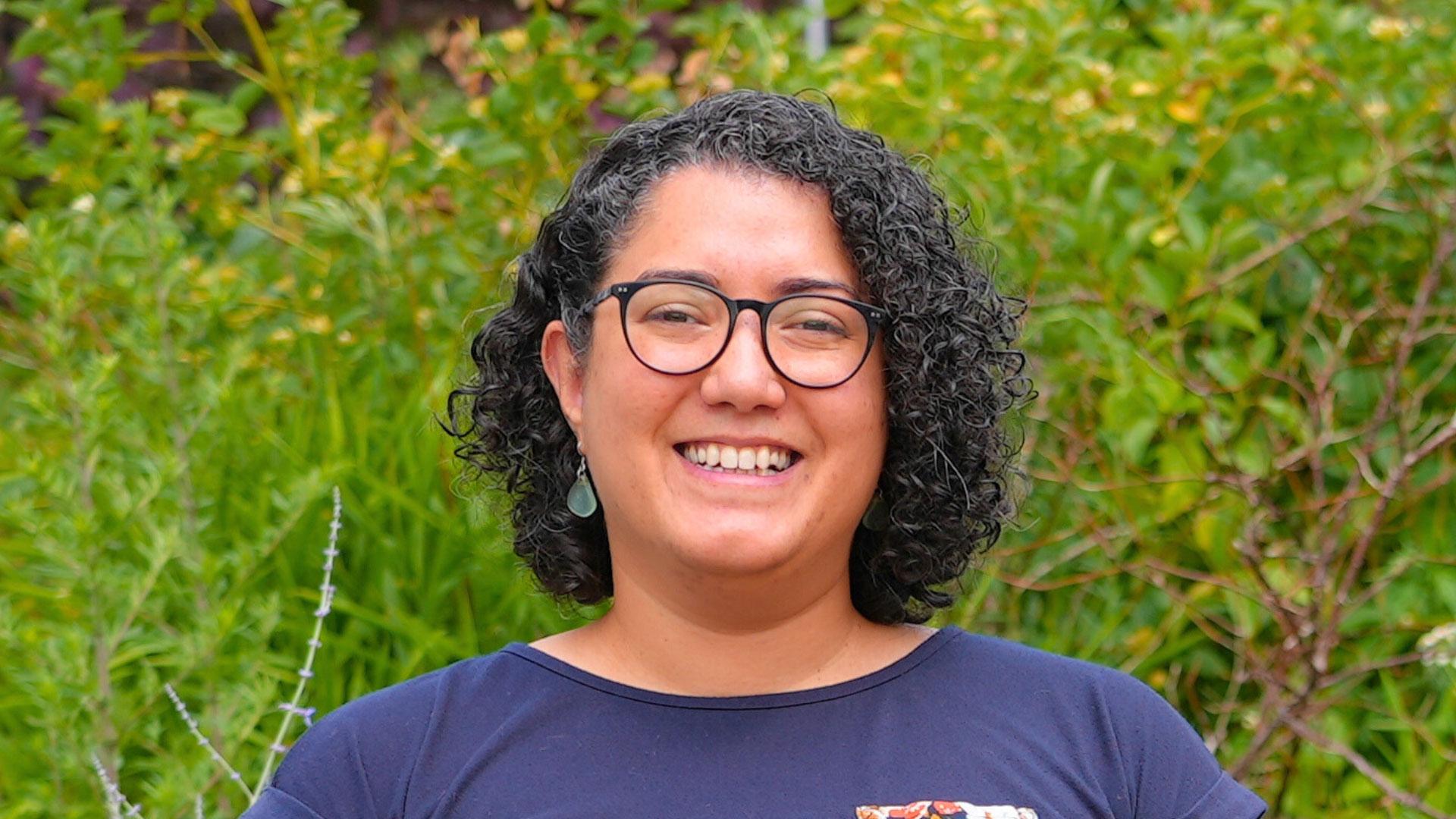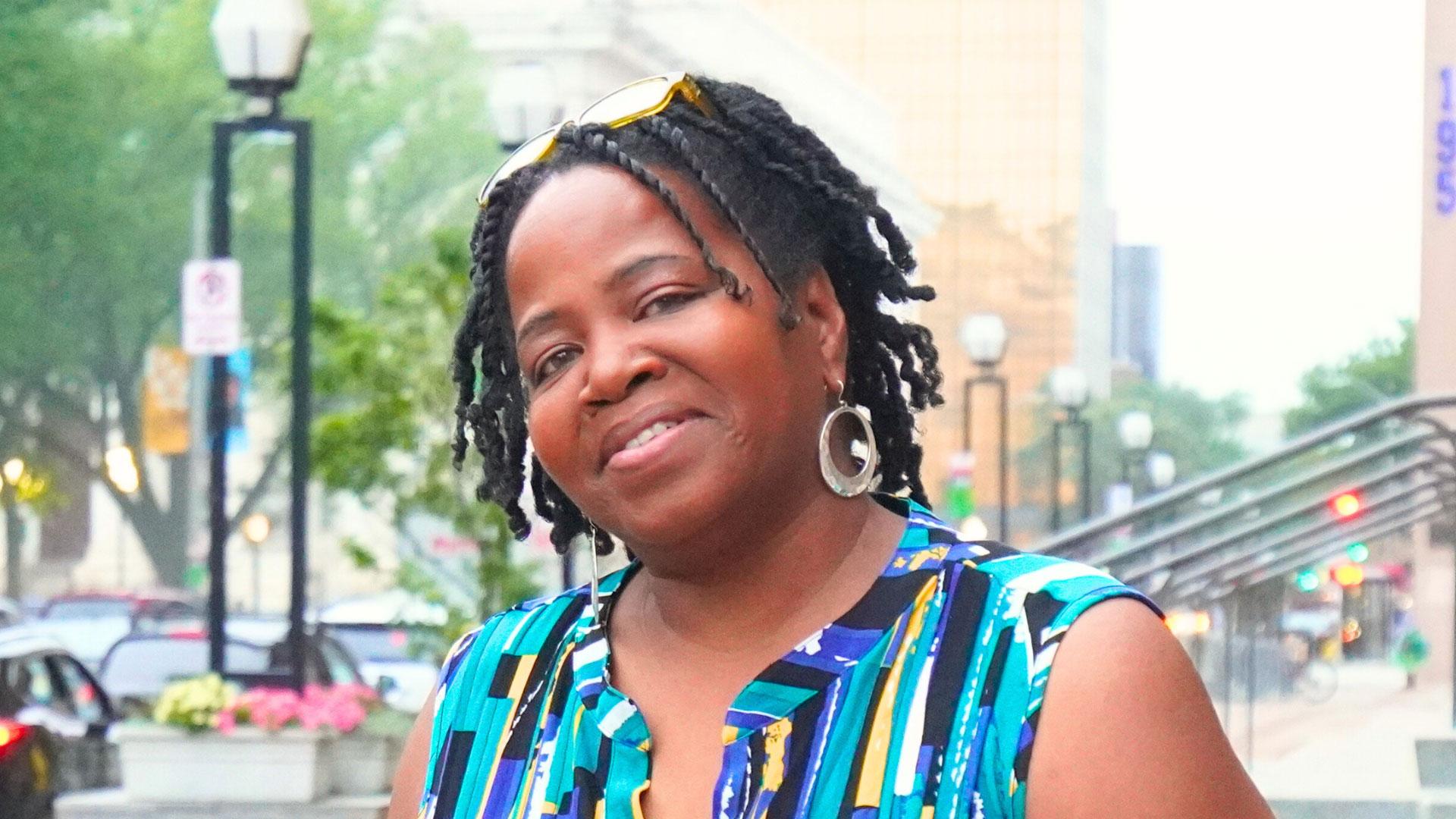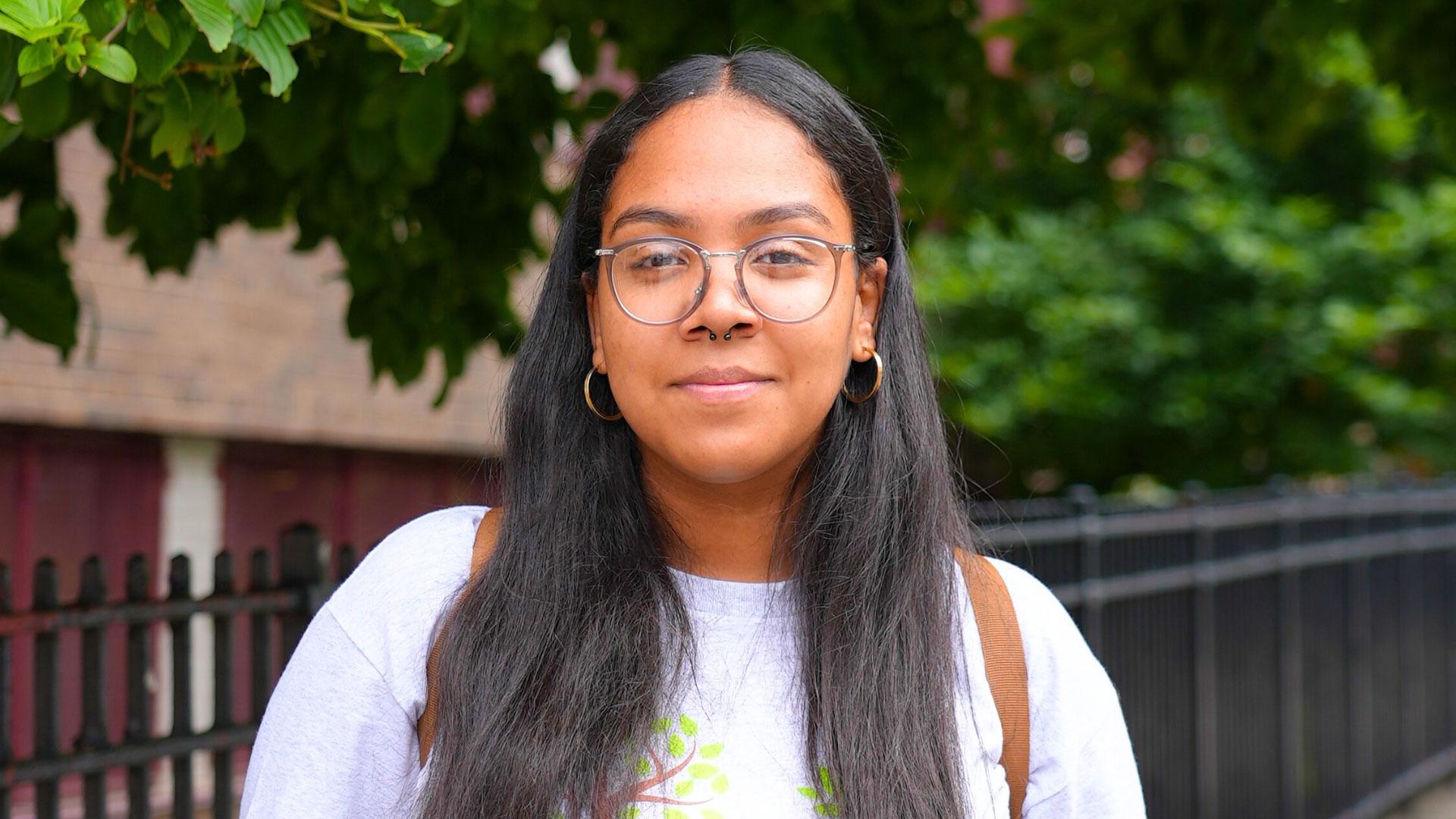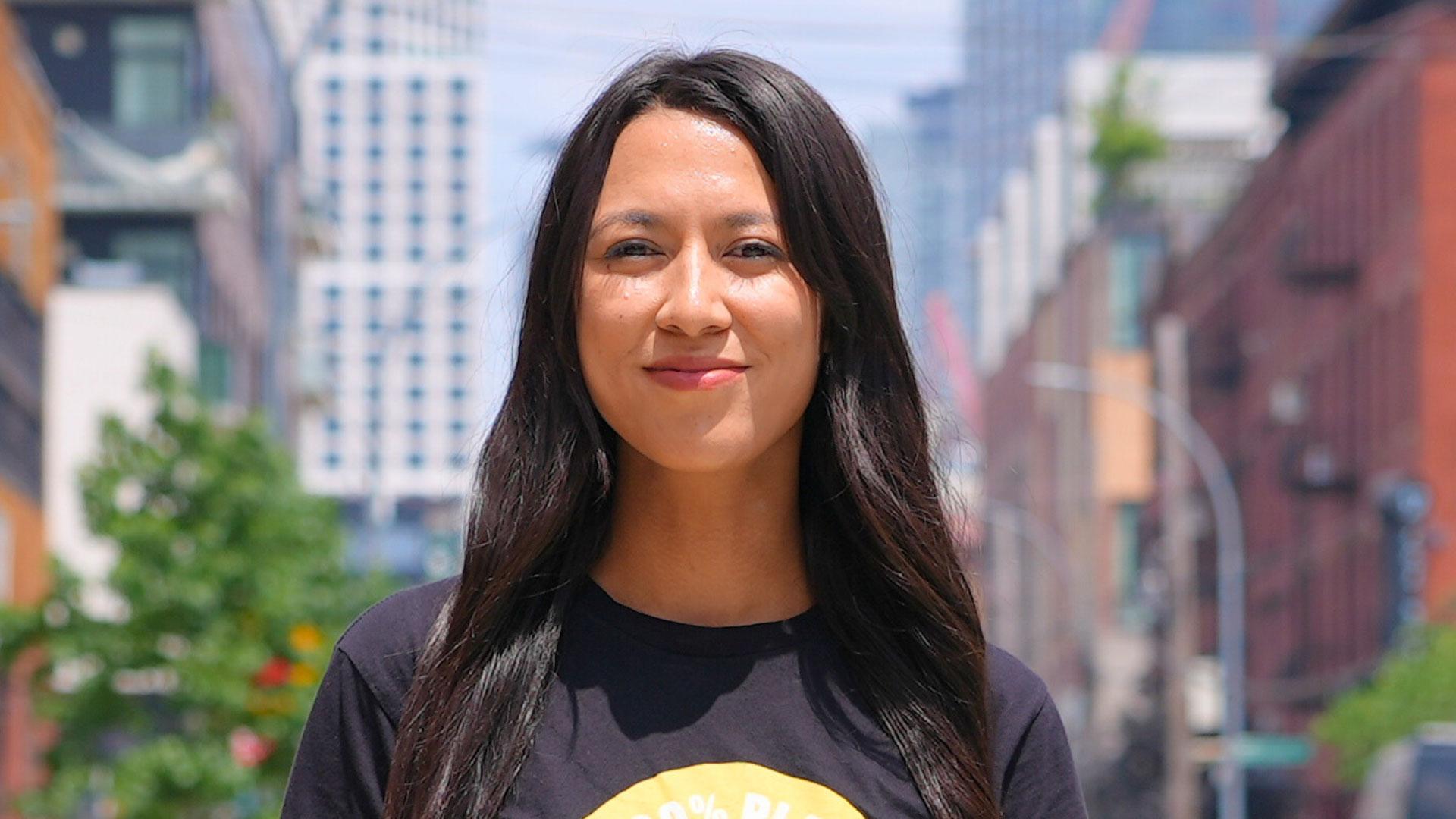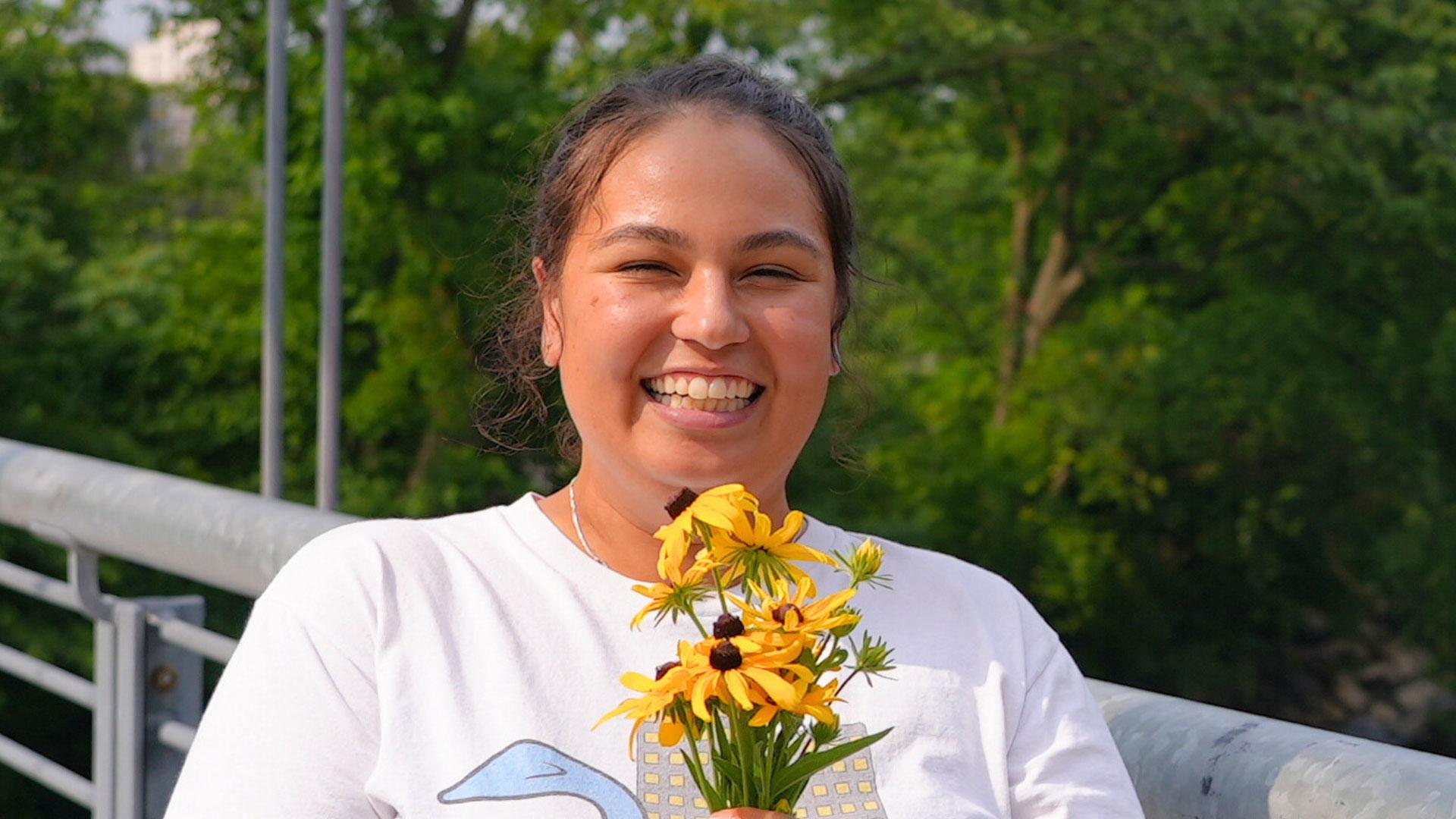Christian Rodriguez: Planting Possibility in the Ironbound
In this Episode
Christian’s Story
Christian Rodriguez is a community organizer in the Ironbound neighborhood of Newark, New Jersey. Christian is focused on educating and engaging their community on environmental issues and is cultivating climate solutions as a farmer, growing fresh food while sowing seeds of justice in younger generations. Ironbound is in close proximity to fossil fuel manufacturing and other heavily polluting industries, including one of the largest trash incinerators on the east coast, an airport, sewage facilities, and the Port of Newark – all within a five-mile radius. The area is an environmental justice “sacrifice zone,” a term used to describe a location that has experienced economic disinvestment in residential areas and has been significantly altered by heavy environmental pollution that further compounds adverse impacts on the people who live there.
Christian’s work at the Ironbound Community Corporation is fighting back through climate solutions that improve surrounding neighborhoods. This includes educating and engaging community members through activities like composting, regenerative agriculture, advocating for renewable energy, and fighting for a future free from fossil fuels.
Discussion Questions
One of the most important things you can do regarding climate change is talk about it.
- Christian grew up in a low-income housing project in the Ironbound and fondly recalls the close-knit community. Many of the youth they work with now are the children of childhood friends. Known as the “community auntie,” Christian instills that same love of community and a vision of “planting seeds” of possibility in the next generation. Christian speaks to the importance of sharing knowledge and learning across generations, saying, “Listen to your elders…and let them guide you in ways that feel right to you.” Who is an elder in your life or community? Have you asked them to share about their life experiences? What might you gain from listening to that elder? And how might that elder benefit from listening to a younger generation? In what ways might this process of developing intergenerational relationships and co-mentorship give perspective to the climate crisis and how we address it?
- After going to college in Florida, Christian returned to New Jersey to take care of their elderly mom and noticed the hazy skies and unpleasant smell in the air. Christian also recalls growing up and playing in a nearby swimming pool which later closed. As an adult teaching youth about environmental justice, Christian now understands that the pool closed because the water was contaminated, part of a pattern of pollution and toxic contamination that their community has faced for decades. Such realizations are what prompted Christian to create change. That spirit of noticing and curiosity is Christian’s climate solution superpower, because asking questions and sharing learnings with your community is a way to ignite collective understanding and action. What is a skill, talent, or value that you have, and how might that be a superpower as you think about the role you can play in climate solutions?
- Christian shares, “As a queer person, I have to fight for spaces where I can be myself.” Showing up as their authentic self has been essential to model for youth, who are also finding ways to fit in. Christian encourages youth to be confident in the expertise of their lived experiences and that their stories matter. When people ask how to dress to visit City Hall, Christian tells them, “As you are!” Christian shares, “If you want to see change in anything you do, don’t be afraid to speak up. Be yourselves and ask questions.” How might being confident in your identity and showing up as yourself, even if that differs from the norm, be necessary for cultivating inclusivity and belonging in mainstream spaces like City Hall?
- Ironbound is a "fenceline" and "frontline" community in the climate crisis. "Fenceline" communities live directly adjacent to industrial manufacturing, fossil fuel infrastructure, and other polluting industries, which cause and compound various health and life stressors. "Frontline" communities face disproportionate and unequal impacts of climate change, including climate-fueled extreme weather, storms, heatwaves, flooding, and more. These places are frequently home to Black communities, Indigenous communities, and communities of color, who often do not have the resources or political power to adequately respond to environmental racism. Christian says that people often go to academia to learn about climate change, but how might we gain clarity and a deeper understanding of climate change by listening to the stories and first-hand experiences of those most directly and disproportionately impacted?
- The Ironbound Community Corporation’s Down Bottom Farms was formerly an empty lot transformed into an urban farm. Christian says that the Ironbound has a limited amount of green space and tree canopy. Trees are critical infrastructure for cities as a climate solution because they keep neighborhoods cooler, protect lives during heat waves, help capture stormwater runoff, filter pollution, and sequester heat-trapping greenhouse gasses from the atmosphere. Trees also beautify neighborhoods for community members, promoting emotional and physical well-being. What is your experience of accessing green spaces in your community?
Learn More
Learn about the solutions in this story.
- Solution Sector: Land Sinks, Food Agriculture, and Land Use
- Solution: Address Waste and Diets
- For more on all of Project Drawdown’s climate solutions, visit drawdown.org/solutions
- Learn more about Christian’s work at the Ironbound Community Corportation
Explore Climate Solutions 101, the world's first major educational effort focused solely on climate solutions. This video series combines Project Drawdown’s trusted resources with the expertise of inspiring, scientifically knowledgeable voices from around the world: drawdown.org/climate-solutions-101.
Check out the Drawdown Roadmap, a science-based strategy for accelerating climate solutions that ensures efforts to stop climate change by governments, businesses, investors, philanthropists, community organizations, and others are as impactful as possible.
Visit the Yale Program on Climate Change Communication, a resource that shares research, communications strategy, and opinion polling on climate communications.
Take Action
- Subscribe to the Project Drawdown newsletter to receive biweekly insights and inspiration to guide your own climate solutions journey.
- Drawdown Ecochallenge, presented by Ecochallenge.org, is a fun and social way to take measurable action on the top climate solutions. Take the challenge, and see how a few weeks of action add up to a lifetime of change for you and the planet. If you want to take action on climate solutions like Christian, start a challenge today.
- The Drawdown Labs Job Function Action Guides are practical resources that highlight specific, high-impact climate actions employees in common corporate professions can take at work.
- ChangeX connects people with proven ideas for strengthening communities with the resources needed to implement those changes. Explore countless ways to improve your community and help the world reach drawdown.
- Climate Generation's Green Careers for a Changing Climate Instructional Supplement (for Grades 6-8) contains resources to help young people learn about Green STEM Careers—paths that use STEM skills to help reduce the impacts of climate change. Throughout this instructional supplement, students use Project Drawdown resources to make important connections between climate solutions and different careers.
- Solutions Journalism Network highlights the importance of reporting stories of climate solutions in the media to create a more equitable and sustainable world. Visit their Teaching Climate Solutions resource to find curated collections and the latest examples of climate solutions journalism.
SubjectToClimate (StC) is a nonprofit online connector for K-12 leaders of all subjects to find materials on climate change at no cost. Explore StC’s educator-generated database to connect to Project Drawdown-based climate education resources.
Sign up to receive updates, provide ideas, and tell us how you might share Drawdown’s Neighborhood in your community.


